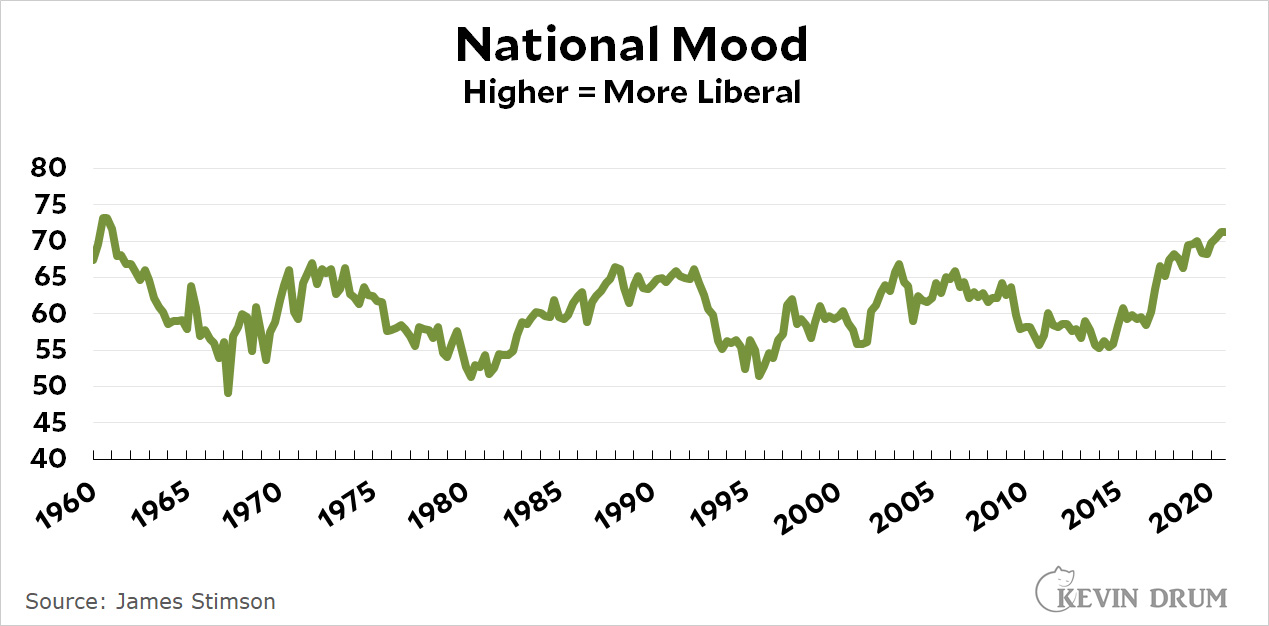Joseph Bernstein writes in Harper's that the average middle-class news consumer in the '50s and '60s was blissfully unaware of what some of his fellow Americans were hearing and reading:
Over frequencies our American never tuned in to, red-baiting, ultra-right-wing radio preachers hyperventilated to millions. In magazines and books he didn’t read, elites fretted at great length about the dislocating effects of television. And for people who didn’t look like him, the media had hardly anything to say at all.
....Today, we are lapsed. We understand the media through a metaphor—“the information ecosystem”—which suggests to the American subject that she occupies a hopelessly denatured habitat. Every time she logs on to Facebook or YouTube or Twitter, she encounters the toxic byproducts of modernity as fast as her fingers can scroll. Here is hate speech, foreign interference, and trolling; there are lies about the sizes of inauguration crowds, the origins of pandemics, and the outcomes of elections.
Extremist nutballs have been with us for a very long time. At first they communicated via mimeographed newsletters and low-power AM radio stations. Later they turned to database-driven direct mail and email chains. Today they use Facebook.
As Bernstein suggests, the big difference here is not that we have more nutballs today than in the past—though we might. The difference is that they mostly flew under the radar until a few years ago. Then they made the move to social media where everyone could see them. In particular, everyone in the mainstream media could see them. And they were shocked. Since they had barely ever encountered this stuff before, they had always figured it was just a tiny fringe. But now it was everywhere. Surely that meant social media had caused a huge increase in extremist nutballism.
But probably not. More likely, it simply exposed us all to reality. These folks had always been around, accusing Ike of being a communist and Bill Clinton of running drugs out of Mena airport. That stuff had an audience of millions but rarely surfaced beyond short blurbs or occasional feature pieces in national dailies. Today it's on the surface to begin with and the mainstream media is entranced with it. They are literally unable to ignore social media storms in a teacup, so today everyone knows all about these folks.
It's possible that social media has made this problem worse. As Bernstein says later in his piece, there's just not a lot of good research here. However, the research we have tentatively suggests that crackpots on social media mostly talk to each other, rather than pulling in new recruits.
Interestingly, Bernstein makes another argument that I haven't seen before. He suggests that one reason we think social media is so powerful is because social media companies encourage us to think so. Facebook spends a huge amount of time and money trying to convince people that it has a secret sauce that makes its advertising far more effective than anywhere else. That argument is a lot easier to make if the entire country is yelping about how powerful Facebook is. So while it might seem like Facebook is trying to appease Congress by cracking down on the nutballs, in reality they love the attention they're getting for supposedly being so powerful that they have to be reined in.
The issue of social media's power and influence is still an open question. There's some evidence to suggest its power has been overblown, but it's pretty tentative. It will probably be several years before we really have a good idea of how influential it is.





